Improved rights for migrant workers in the Middle East
Significant steps have been taken in the Middle East to improve the employment and living conditions of migrant workers. Recent reforms in Qatar, Lebanon and Jordan supporting policies that respect human rights are a result of international cooperation carried out over the years by governments, international organisations and NGOs. For Switzerland this confirms that its projects and teamwork on the ground have been effective.
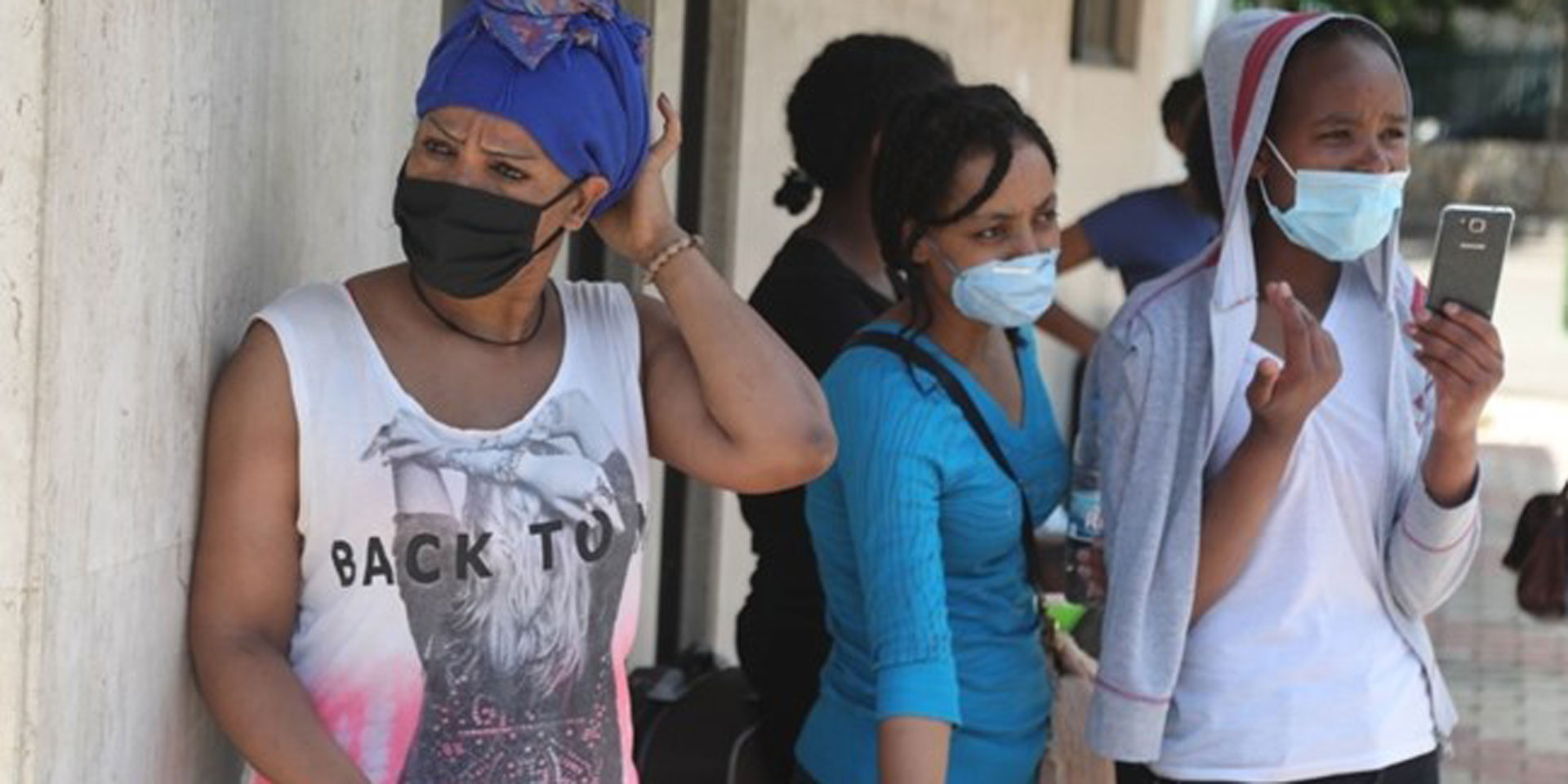
Switzerland is involved in Lebanon at both the political and operational levels. It combines diplomatic instruments with international cooperation. © The Daily Star/Hasan Shabaan
Consider Ayana, for example: a young Ethiopian woman who went to Lebanon in search of a job. Through an agency, she was placed as a housemaid earning USD 200 a month – well below the Lebanese minimum wage of USD 450. Soon after she arrived, her passport and residence permit were taken away. In addition to inhumane working hours, she is not allowed to leave the apartment without the consent of her employer, let alone leave the country. This brief reconstruction is a typical example of the fate shared by some 272,000 foreign domestic workers in Lebanon.
The kafala system
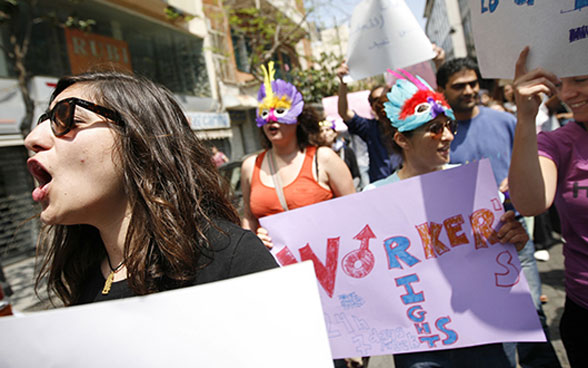
The vast majority of the 258 million international migrants in the world work for families – about half of them women. In this regard, the Middle East is one of the fastest growing reception and transit areas for migrant workers. Migrant workers can bring a major boost to the social and economic development of these countries, as well as to the countries of origin, but the institutional and legal framework is often inadequate to ensure their rights are protected – particularly those of the most vulnerable. Most of them, employed mainly in the domestic sector, are indeed subject to the kafala system, a very common institution in the Arab world established in the 1950s.
The term kafala literally means sponsorship: a foreign worker is tied in the country of destination to a sponsor, usually their employer, who guarantees their residence permit. Initially created to facilitate the recruitment of workers, poor regulation and control has led to exploitation by the employer, non-payment of wages and inhumane living conditions.
The Swiss Agency for Development and Cooperation (SDC) has been working for years in various countries to promote lasting systemic changes in state systems. Working together with various partners, its efforts have recently borne fruit, contributing to the introduction of important reforms of the kafala system that protect workers in countries such as Qatar, Jordan and Lebanon. Indeed, countries in the Middle East region are attentive to the practices adopted by their neighbours. Switzerland's ambassador to Lebanon, Monika Schmutz Kirgöz, gives us a broader understanding of the situation in the country, direct from Beirut.
International cooperation and diplomatic instruments as complementary approaches
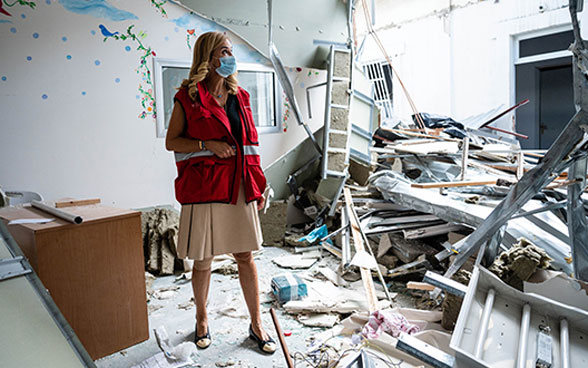
Through the work of its embassy in Beirut and the SDC's Global Programme Migration and Development, Switzerland has long been active in Lebanon with the aim of ensuring decent working conditions for low-skilled workers – migrants, refugees and Lebanese nationals alike. This long-term commitment started well before the economic crisis and the COVID-19 pandemic exacerbated the country's appalling working conditions and made international headlines. "In Lebanon we are involved at both the political and operational levels, combining diplomatic instruments and international cooperation as complementary approaches," explains Ambassador Schmutz Kirgöz. The action taken by Switzerland to promote the introduction of a standardised employment contract for domestic workers, through its partnership with the International Labour Organization (ILO), is a concrete example. The adoption of the contract had stalled after months of drafting, and a new impetus was needed to get things moving. "One of Switzerland's strengths is its ability to bring together several partners and coordinate different approaches," says Schmutz Kirgöz. "In addition to meeting personally several times with the current minister of labour and her predecessor, it was therefore important for her to organise a working lunch with other stakeholders : in addition to the Lebanese minister of labour and the ILO, the ambassadors of Canada, the European Union, the United Kingdom, Sweden, Norway and the Netherlands also took part. This provided an opportunity to stress the urgency of adopting the new agreement and to exchange views on opposition to the reforms."
This concrete action behind closed doors was accompanied by a clear public message in favour of reforms, which appeared on International Domestic Workers' Day in three of the four main Lebanese newspapers and was co-signed by representatives of several countries. Following this series of initiatives came the good news that the outgoing minister of labour had decided to adopt the standard unified contract, which provides for legal protection, regular working hours, protection against accident and illness and decent housing.. “The contract should have entered into force shortly. Unfortunately, last Friday we received the news that the Lebanese recruitment agencies had obtained a postponement of entry into force in court. Setbacks like these show that persistence is necessary for effective reforms. At the same time, this resistance confirms that the contract will lead to real change. Let us not become discouraged and plan the next steps in close cooperation with all partners and the government,” says Schmutz Kirgöz.
Cooperation with local actors – the key to success
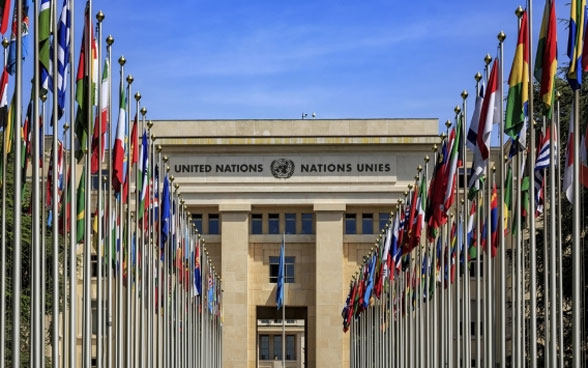
The examples given by Switzerland's ambassador to Lebanon highlight the importance of working with various partners on the ground – from governments to multilateral organizations and civil society. "Cooperation with local actors is the key to success," she explains. "Switzerland's approach is to support local partners on the ground in their efforts. Working together in this way helps us to gain a deeper understanding of the situation in the country and its complexity, and helps us to align our strategy accordingly."
For the specific actions undertaken to reform the kafala system, the UN is a key partner. Indeed the ILO, which receives financial support from Switzerland, closely followed the entire process of drafting the standard unified contract. Switzerland also supports the implementation of laws and regulations through its cooperation with civil society organisations. "Of course we also work directly with the government. In the long term, effective change isn't feasible if the state doesn't support it. It is therefore important to regularly include these issues in our political dialogue."
The impulse of young people promoting change
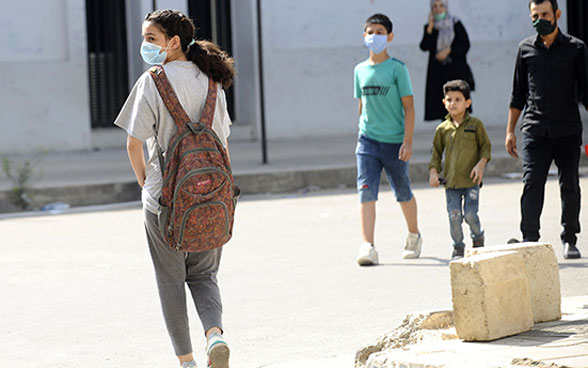
There is no talk of abolishing the kafala system, however, but rather of its 'dismantling'. "Unfortunately, the kafala system isn't simply one law that can be abolished," continues Schmutz Kirgöz. "It is a complex system of legislation, rules and practices from which some benefit financially, like recruitment agencies. The power of these agencies has been clearly demonstrated by the postponement of the entry into force of the contract mentioned above.”
There are therefore many further steps to be taken, not least to ensure that workers can count on the justice system if their rights are not respected. Lebanon is going through one of the biggest crises in its history and to overcome it young people have an important role to play. "No strategy to replace the kafala system can be limited to a mere adaptation of the legal framework. It requires a willingness to combat the deeply rooted stereotypes, behaviours and prejudices that make discrimination against domestic workers acceptable today. The younger generation is questioning this discrimination and is looking for alternatives for providing childcare and domestic help – in ways that fully respect people's dignity," concludes Schmutz Kirgöz.
